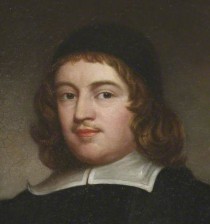
Born in Somerset in 1620 from a long line of ministers, Thomas Manton entered the University of Oxford as early as 1635. Such was his progress that he was ordained by Bishop Hall at the age of nineteen.
His first charge was in Stoke Newington, Middlesex, where he remained for seven years. Testimony to his remarkable gifts is found in the pages of his Practical Exposition of James which is based on his weekday lectures there.
Called to succeed Obadiah Sedgwick in the better-known pulpit of Covent Garden in London, his ministry came to be widely appreciated. He served as a chaplain to the Lord Protector, Oliver Cromwell, and also as one of the ‘Triers’ responsible for the supervision of the Christian ministry. Yet Manton was firmly opposed to the execution of Charles I, causing considerable offence by preaching before Parliament from Deuteronomy 33:4-5.
Moses commanded us a law, even the inheritance of the congregation of Jacob. And he was king in Jeshurun, when the heads of the people and the tribes of Israel were gathered together.
Later he was instrumental in the restoration of Charles II and became a Royal Chaplain. But when offered the Deanery of Rochester he chose rather to suffer with his Puritan brethren in the Great Ejection of 1662.
Preaching thereafter in his own home he was imprisoned for his ministry. Such was Manton’s character, however, that when the custodian-in-charge was absent he was given the keys to the gaol.
Manton died in 1677, after a lifetime of rich and practical biblical ministry. The Trust publishes his Works, and his expositions of James, Jude, Psalm 119, and Hebrews 11 (By Faith).
[The author image is from a painting of Manton by Gustavus Ellinthorpe Sintzenich, by kind permission of Mansfield College, Oxford.]